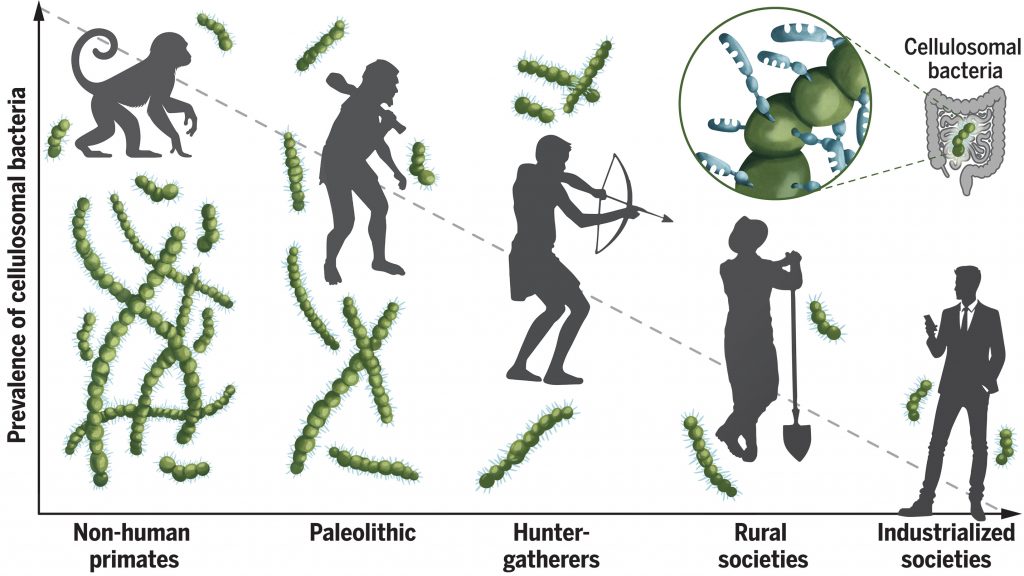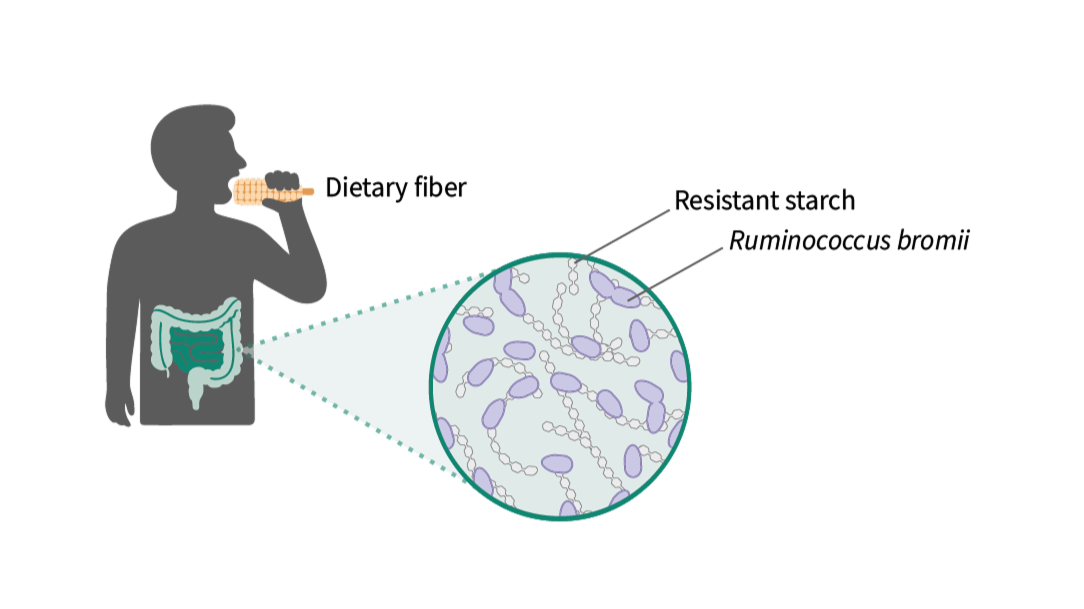Picture this, thousands of years ago, humans thrived on diets rich in fiber, packed with tough plant materials like cellulose. Back then, our guts were full of specialized bacteria that could break down these fibers, turning them into fuel for our bodies. Fast forward to today, and with the rise of processed foods and low-fiber diets, many of these helpful microbes have vanished from our guts. But what if bringing them back could unlock new ways to boost our health?

Our latest discovery has revealed three previously unknown bacteria that could be the missing link. We’ve named them Candidatus Ruminococcus primaciens, R. hominiciens, and R. ruminiciens, and they’re capable of breaking down cellulose—a skill that was thought to be rare in the human gut. These bacteria were once widespread in ancient humans, great apes, and rural populations, but are now incredibly hard to find in modern, industrialized societies.
Here’s where things get really interesting. These bacteria didn’t just show up in our guts by chance—they likely came from the digestive systems of ruminant animals like cows and sheep, and eventually made their way into humans during domestication. Over time, they evolved to fit their host’s diet. For example, the bacteria in nonhuman primates help them break down insect exoskeletons, while the ones in humans are experts at digesting plant fibers found in grains like maize, wheat, and rice.
Why Should You Care?
So, why does this matter for you? These bacteria were a vital part of our ancestors’ digestive systems, helping them break down plant fibers and get the most out of their food. But as our diets became more processed and less fiber-rich, we started losing these gut heroes. And while this might seem like a small shift, it could have significant impacts on our digestion, energy levels, and overall gut health.
A Path to Healthier Guts
But here’s the exciting part: our research suggests that we can potentially bring these bacteria back. By increasing our intake of fiber-rich foods or through specially designed probiotics, we might be able to reintroduce these cellulose-digesting bacteria into our modern guts. Doing so could help improve digestion, balance energy, and even enhance our gut’s overall function.


